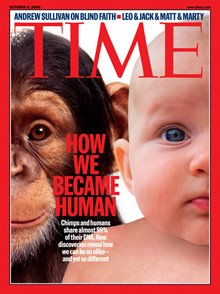no movie questions
or you can post here and try to change my mind.
try to pick a debate topic by then.
also your project topic/initial bibliography is DUE WEDNESDAY. Please turn it in printed out (so I can comment on it.)
Combined in pairs (examples):
0. (effects of science on culture) The development of written language marks the shift from prehistory to the historic record and a dramatic change in human culture. Do you think that M-Theory, if true, has the potential to produce as large a change? Why or why not?
1. (favorite reasoning method in mythology) In the middle ages, scholars used a four-fold method to interpret the Bible. Called the quadriga, this held each passage had a literal, typological (allegorical), tropological (moral) and anagogical (prophetic) meaning. Explain which of these four interpretations you think Joseph Campbell would favor.
2. (identifying the reasoning method) Given these three epistimological methods: Empiricism, Rationalism; Romanticism, indicate which is most frequently invoked by supporters of M-Theory. Justify your answer.
3. (finding both good and bad in questionable science) With regard to Graham Hancock's theories of a lost prehistoric civilization, in which step of the scientific method does he seem to be most lacking? In which is he strongest? Explain.
4. (recognizing the underlying, unstated ideas) List three major presuppositions evolutionary biologists make when they try to use evolution on earth to predict what life on another planet would look like.
5. (comparing/contrasting reasoning methods) Compare the type of reasoning use in the Why Plant Trees essay with the arguments Galileo made using tides to show the rotation of the Earth. How is the reasoning similar and dissimilar?
6. (generalizing negative results) Give an example which demonstrates the Stone/Bronze/Iron Age cultural divisions to be inaccurate. Does this prove anything about the inadequacy of language?
7. (applying meta-knowledge) Paraphrase a maxim from Heraclitus. Choose a problem one of the scientists we have studied has grappled with. How might have applying Heraclitus' idea help direct the inquiry into the problem?
8. (transferring ideas across disciplines) It has been said that ontogeny recapitulates phylogeny; that is, during the development of an embryo each successive stage represents one of the forms that appeared in its evolutionary history. What sort of problems arise when I try to adapt this theory to explain the mental development of an individual, claiming that older people can understand the thinking of younger people, and not vice versa.
9. (applying the scientific method) When talking about the wave/particle theories of light, Schroeder concludes: "We see the world as we assume it exists." (SoG p. 153) If I hypothesize that light is a wave, and do Einstein's photoelectric experiments, I find my hypothesis disproven. Likewise, if I hypothesize light is transferred by particles and perform Young's slit experiments, that hypothesis is also disproven. Does Schroeder's conclusions fit within the scientific method? If not, why not and what should a scientist conclude?
If you study in groups to understand and get broad ideas about how to answer these questions; great.
If you study in groups, produce one set of answers, memorize them and all write the same thoughts down, I will be very annoyed.
Think for yourself!
 So, I got to time.com and find they linked not only to a cover article (which is not online in full text), but also to How Man Began, published twelve years ago!
So, I got to time.com and find they linked not only to a cover article (which is not online in full text), but also to How Man Began, published twelve years ago!